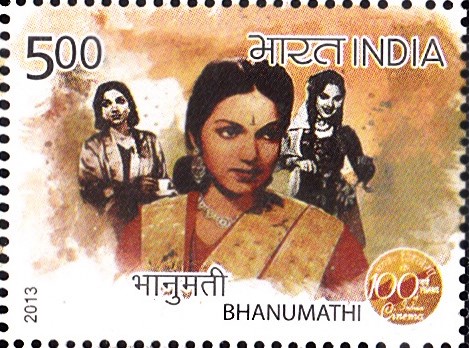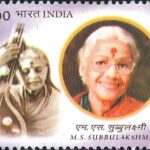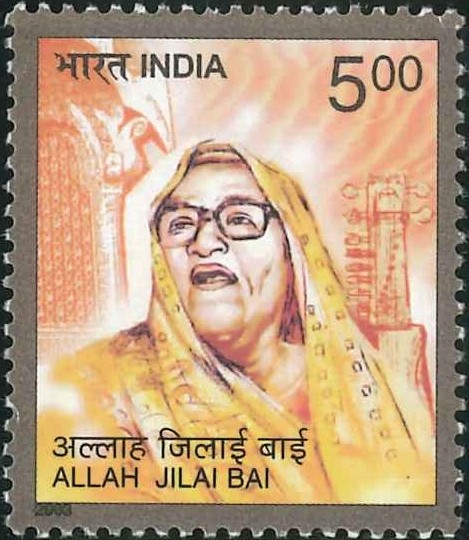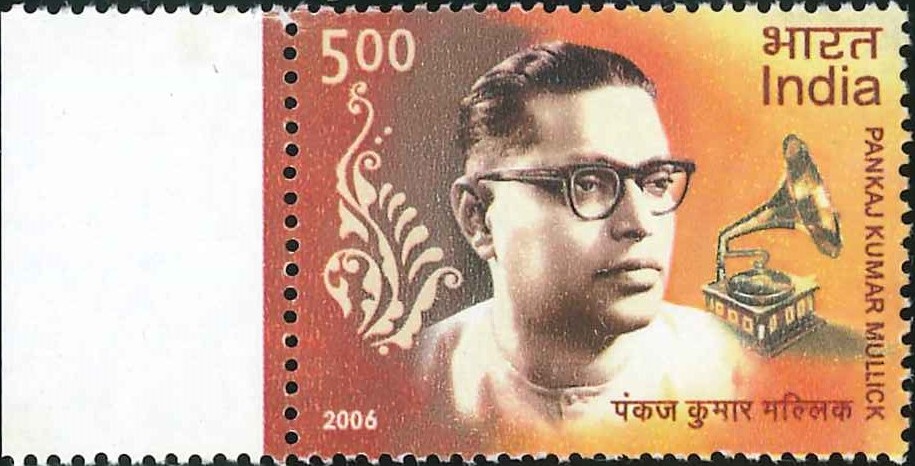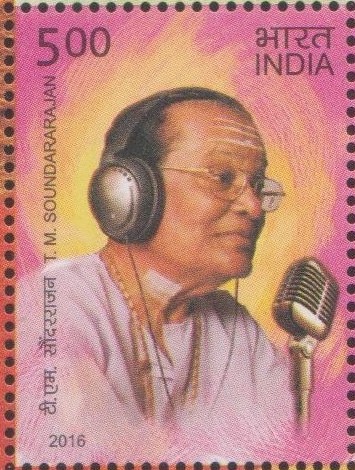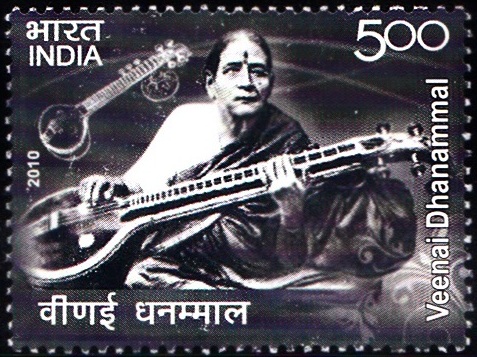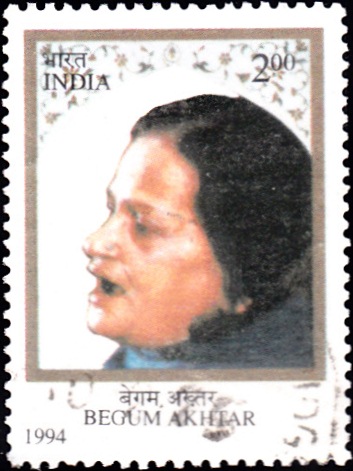
Begum Akhtar
A commemorative postage stamp on Akhtari Bai Faizabadi (Mustri Bai), a Hindustani classical music vocalist :
 Issued by India
Issued by India
Issued on Dec 2, 1994
Issued for : The Department of Posts has from time to time brought out special commemorative postage stamps on famous personalities and themes related to the art and culture of India. The issue of a commemorative postage stamp on Begum Akhtar by the Department is a tribute to the legendary queen of ghazals.
Credits :
Photographs : Avinash Pasricha
Design : Yashwant Jamsandekar
Concept : Rita Ganguly
Type : Stamp, Postal Used
Colour : Multi Colour
Denomination : 200 Paise
Overall size : 3.91 x 2.90 cms.
Printing size : 3.60 x 2.60 cms.
Perforation : 13 x 13
Paper : Unwatermarked matt coated, gummed, calendered Stamp Paper
Number of stamps Printed : 1 Million
Number per issue sheet : 35
Printing Process : Photo offset
Printer : Madras Security Printers, Madras
Name : Akhtari Bai Faizabadi
Born on Oct 7, 1914 at Bhadarsa, Faizabad district, Uttar Pradesh, India
Died on Oct 30, 1974 at Ahmedabad, Gujarat, India
About :
- Begum Akhtar or Malika-i-Ghazal, as she was popularly known, has rightfully been called the mother of ghazals in the Indian subcontinent. Though the ghazal had its origins in the times of Hazrat Amir Khusro about six centuries ago, it was Begum Akhtar who by her passion for ghazal singing and perseverance brought it to the forefront as a musical expression.
- The date 2nd December 1919, stands out as a red letter day in the life of the Begum. On this day at the tender age of five, she joined the local missionary school in Faizabad where the renowned singer Gauhar Jan heard her sing. Impressed, she predicted a bright future for little Akhtari. Her faith was vindicated when Begum Akhtar reached legendary heights of musical excellence. Few can forget the exceptional popularity and the outstanding sales of her memorable ghazals especially, “Deewana Banana Hai To Deewana Banade” that mesmerised music lovers.
- In art, as well as in life, Begum Akhtar became a symbol of gender assertion as well as the spirit of secularism. Her song “Ganga Maiya“ thrilled listeners throughout India.
- Text Source : Arshiya Seth.


